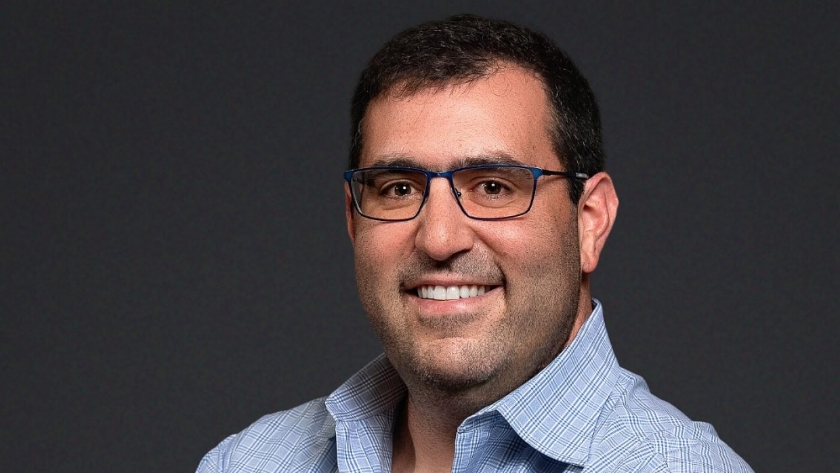
By Agroempresario.com
In a foodtech investment landscape defined by capital scarcity, valuation resets, and investor pullback, Siddhi Capital is emerging as a player rewriting the rules of engagement. Cofounded by Steven Finn, the U.S.-based venture capital firm is doubling down on durable technologies, GLP-1-driven nutrition, and leaner startups poised to thrive under pressure.
"The climate right now for foodtech investing is maybe as bad as it's ever been," acknowledges Steven Finn, a founding partner at Siddhi Capital. Yet while many generalist investors have exited the space, Siddhi Capital is leaning into the chaos with a calculated shift: prioritize companies with low financing risk, clear capital pathways, and tangible near-term impact.
Finn compares the current boom in GLP-1-related startups to the generative AI explosion: "GLP-1 is our AI. It's a huge opportunity." From companion foods for consumers on GLP-1 medications to natural alternatives that stimulate similar gut hormone responses, Siddhi Capital is identifying new consumer behaviors and unmet needs.
Portfolio companies like Magic Spoon, Lembas, SuperGut, and mealogic are well-positioned to serve this emerging market. Meanwhile, startups such as ProFuse Technology, originally focused on cultivated meat, are now finding pharmaceutical applications to support muscle retention for GLP-1 users.
"The sheer amount of mentions of GLP-1 and related themes in my inbox is insane," Finn says, signaling a seismic consumer shift that venture capital cannot afford to ignore.
AI also has a place in Siddhi's portfolio, but not where many might expect. The focus is on backend gains—bioprocess optimization, predictive modeling, and cost reduction in fermentation. Finn sees promise in AI tools that enable biotech startups to reduce experimentation cycles and cut down the capital-intensive nature of R&D.
Biomanufacturing infrastructure is also a critical puzzle piece. Liberation Labs, one of Siddhi's key investments, is building commercial-scale fermentation facilities in Indiana. The goal: give precision fermentation startups a viable pathway to production without needing to raise $200 million to build proprietary infrastructure.
"Their existence makes the world tangible," Finn notes. With Liberation Labs in play, startups can pitch realistic business models to investors and customers alike.
In this new paradigm, Siddhi Capital isn't just chasing disruption—it's underwriting resilience. "We needed to underwrite Plantible such that if it never made it past being an egg replacer, that was still a big enough business," says Finn. It's a philosophy born of necessity, where cash preservation trumps moonshots.
This new investment framework favors startups that avoid capital-intensive scale and instead focus on high-value niches, such as Future Fields' insect-based recombinant proteins and Oishii's luxury strawberries. Even in the animal-free dairy sector, Finn sees rationality returning, with most players now focusing on precision fermentation of high-value lactoferrin rather than trying to remake the entire dairy aisle.
Finn is candid about the role of strategic investors and CPG giants in this evolving ecosystem. "They've squandered a huge opportunity to get real tech for peanuts," he says, criticizing a lack of urgency from legacy firms. Still, there are exceptions—Rich Products Ventures and Nourish Ventures (Griffith Foods) are praised as thoughtful collaborators.
The revolving door at the executive level in many large CPG companies makes consistency hard. "Their CEOs last as long as their corporate venture programs," Finn remarks, suggesting the need for more enduring vision and strategic alignment.
Siddhi is also unafraid to voice hard truths. Finn critiques startups that mask deep tech behind low-margin consumer brands, calling the approach misguided: "If your business needs to manifest as a consumer brand, in my opinion, you're already dead."
He also agrees with skeptics like TiNDLE's cofounder, who question whether there's genuine consumer demand to shift away from meat: "We need independently craveable products at good prices. Consumers won't sacrifice taste or price to make ethical food choices en masse."
This realism is reflected in Siddhi's tempered enthusiasm for cultivated meat. While Finn still sees potential, many of their portfolio enablers have either pivoted to pharma or folded due to commercial challenges. Companies like Ark Biotech have successfully reoriented to serve pharma clients, who offer greater financial reliability.
Beyond capital, Siddhi Capital differentiates itself through active operational support. "We have an internal services team that builds manufacturing facilities, runs commercial backends, and launches line extensions," Finn says. In an environment where capital alone isn't enough, this hands-on approach helps portfolio companies survive and scale.
Finn sees the current downturn as a Darwinian moment for foodtech: "The first wave had to do it all. The second wave is focusing on high-value differentiation." With lessons learned from the collapse of overhyped categories like insect protein, indoor farming, and plant-based meats, the next generation of founders is prioritizing efficiency, science, and customer value.
Siddhi Capital's thesis of "financing risk first" may not sound glamorous, but it could be the foundation for sustainable innovation. "We can't expect the next investor to be there even if things are working perfectly early," Finn cautions. In today's climate, self-sufficiency isn't optional—it's essential.
